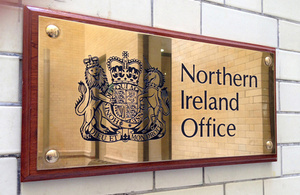Russia’s systematic attacks on Ukrainian civilian infrastructure are unacceptable, and must end
Thank you President, and thank you Under-Secretary-General DiCarlo for your briefing. We welcome President Zelenskyy’s participation in this Council meeting today.
President, we discussed the situation in Ukraine last week. The Council’s message at that meeting was clear: Russia’s systematic attacks on Ukrainian civilians and civilian infrastructure are unacceptable, and must end.
Over the past week Russia has continued its campaign of terror, killing more civilians, attacking more civilian targets, and causing colossal damage to Ukraine’s energy infrastructure.
Russia is deliberately bombing hospitals and other medical facilities. The World Health Organization has recorded 703 such attacks since February.
We’ve heard today that a newborn baby was murdered in a strike on a maternity unit in Zaporizhzhya last night. Russia is destroying lives in Ukraine that have barely started.
As President Zelenskyy said, Russia is trying to achieve with terror and murder, what it could not achieve in nine months on the battlefield – the complete subjugation or destruction of Ukraine.
President, Russia must observe its obligations under international humanitarian law. But this is not a replacement for peace.
President Zelenskyy has presented a comprehensive plan for a negotiated end to the war. The first crucial steps are for Russia to end its unilateral aggression and restore Ukraine’s sovereignty and territorial integrity, in line with its obligations under the UN Charter.
Russia has spoken of wanting negotiations. But actions speak louder than words.
President, as my Prime Minister said in Kyiv last week, the UK will be providing new air defence equipment, and stepping up humanitarian support for the cold hard winter ahead. We continue to stand with Ukraine as it fights to end this barbarous war and deliver a just peace.
Thank you.
